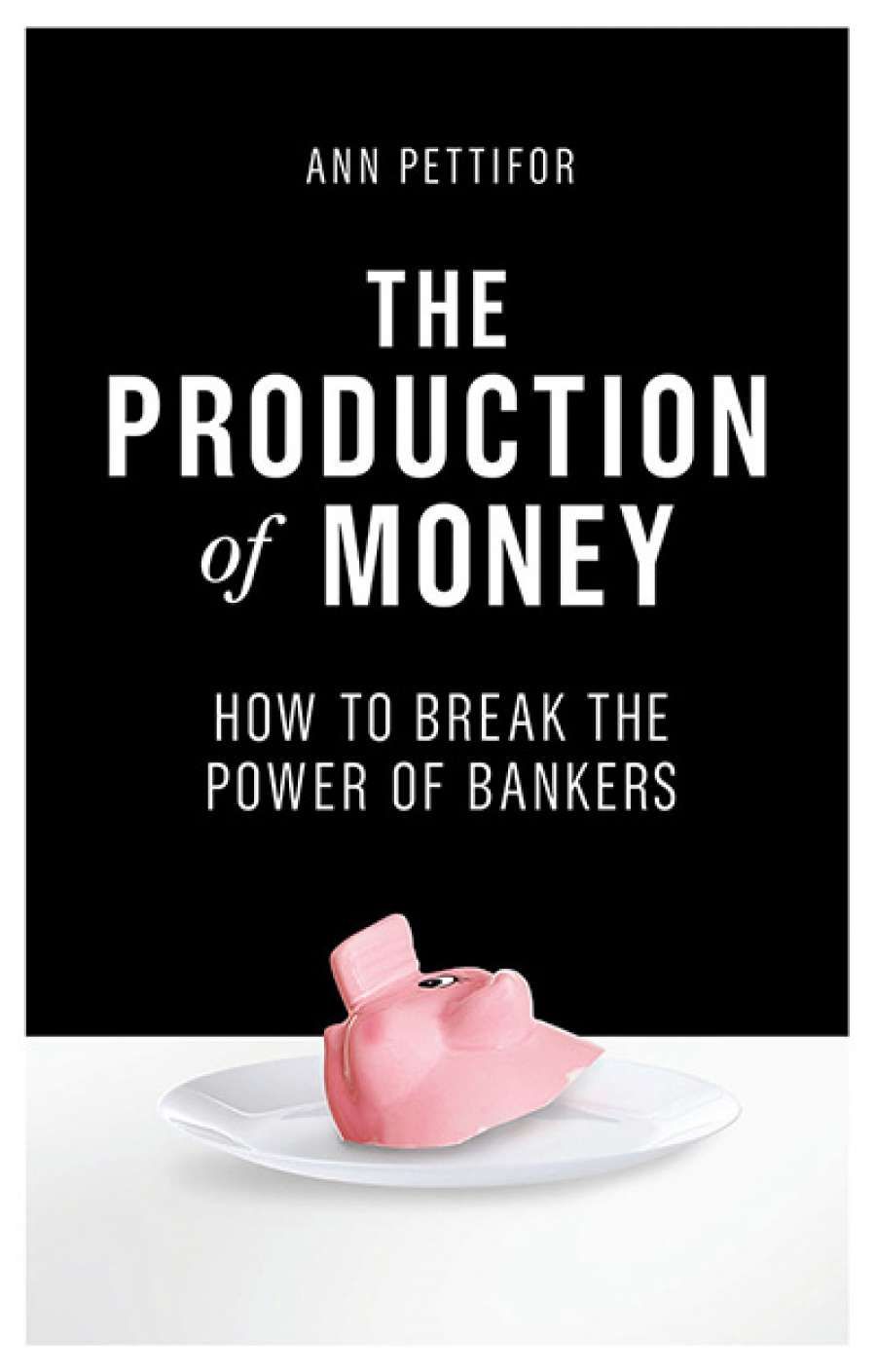
- Free Article: No
- Contents Category: Economics
- Custom Article Title: Adrian Walsh reviews 'The Production of Money: How to break the power of bankers' by Ann Pettifor
- Book 1 Title: The Production of Money
- Book 1 Subtitle: How to break the power of bankers
- Book 1 Biblio: Verso, $26.99 hb, 192 pp, 9781786631343
But there are also threats to democratic institutions from another direction as a consequence of the liberalisation of the economy. Such liberalisation effectively limits the power of Western democracies to control the excesses of financial capital. Arguably, it has been the financial capital’s freedom from constraint – and the social dislocation that subsequently ensued from that freedom – that has paved the way for those who would undermine our democratic traditions and democratic institutions. It is these threats from the free movement of capital with which Pettifor is principally concerned.
Pettifor – who has a background in macroeconomic policy research and who led the Jubilee 2000 campaign for debt reduction in the developing world – is an unapologetic Keynesian. (Early in the book, she makes the remarkable claim that John Maynard Keynes and Charles Darwin are the two great British intellectuals.) However, Keynes’s ideas have been unfashionable within the economics profession and with policy-makers since the mid-1970s when classical economic theory, with its deification of free markets, reasserted itself. This book is, in part, an extended plea for a return to Keynesian economic policy.
It should be no surprise to anyone familiar with Keynes’s work that Pettifor endorses greater governmental control over the economy. Pettifor cites recent empirical studies that suggest that there is no robust support for the idea that international financial integration provides quantifiable benefits. Much of what Pettifor asserts about the proper relationship between the State and the economy is standard Keynesian fare. In the years since 2008, many critics of the global financial system have made similar points about the need to re-regulate the financial sector. However, what is most distinctive about Pettifor’s analysis are her claims regarding the production of money itself and how that very production affects public policy significantly.
Three key claims about the money system stand out as particularly noteworthy, especially for the layperson with little acquaintance with the inner workings of finance. First, Pettifor argues that rather than being printed by governments, money is made by private banks. Intuitively, this seems odd. Whenever television news items concerning impending changes to lending policy are reported, they invariably switch to footage of the government mint with freshly pressed notes. But as Pettifor notes, when banks loan money they do not do so on the basis of cash they have saved. Each time a bank deposits a personal or business loan in a bank account, they simply ‘tap numbers on a computer keyboard’. Most of the loans upon which business depends are not the result of government activity but are produced by private lending institutions.
 Ann Pettifor (image courtesy of Verso)Secondly, Pettifor notes that money does not come from savings but is underpinned by trust. When one loans money to another person or institution, one is expressing trust in their ability to pay it back. So long as those who borrow have the ability to repay the loan then this is all that is required for the system to function effectively.
Ann Pettifor (image courtesy of Verso)Secondly, Pettifor notes that money does not come from savings but is underpinned by trust. When one loans money to another person or institution, one is expressing trust in their ability to pay it back. So long as those who borrow have the ability to repay the loan then this is all that is required for the system to function effectively.
Thirdly, Pettifor defends banking as a fundamental public good. This is, in a sense, quite surprising since one might naturally assume from the book’s subtitle that the author is opposed to all banking. However, Pettifor is not opposed to credit itself; indeed she sees credit as an essential element of a well-functioning society. Pettifor argues that credit is creative but needs to be constrained so as to ensure that the banking system works in the interest of society as a whole. The point is not to strip banks of their ability to create money, but simply to regulate their activities.
The Production of Money provides genuine insights into the international monetary system and its influence on our current political arrangements. Pettifor argues that private control over the production of money hands monetary policy itself over to the private sector: she argues that the power of bankers must be subordinated to the will of democratically elected governments. Whether re-regulation of the banking sector is politically feasible is a matter of some considerable debate, especially given the political power wielded by the banking sector. However, Pettifor observes that such control has been achieved before – here she takes Roosevelt’s battles with financial élites in the 1930s as inspiration – and thus can be done again.
Be that as it may, the threats posed by highly mobile international capital that Pettifor identifies are genuine and clearly need to be addressed if the social dislocation of recent times is to be avoided. Pettifor presents a compelling case why the production of money cannot remain a sphere that is immune from democratic control.


Comments powered by CComment